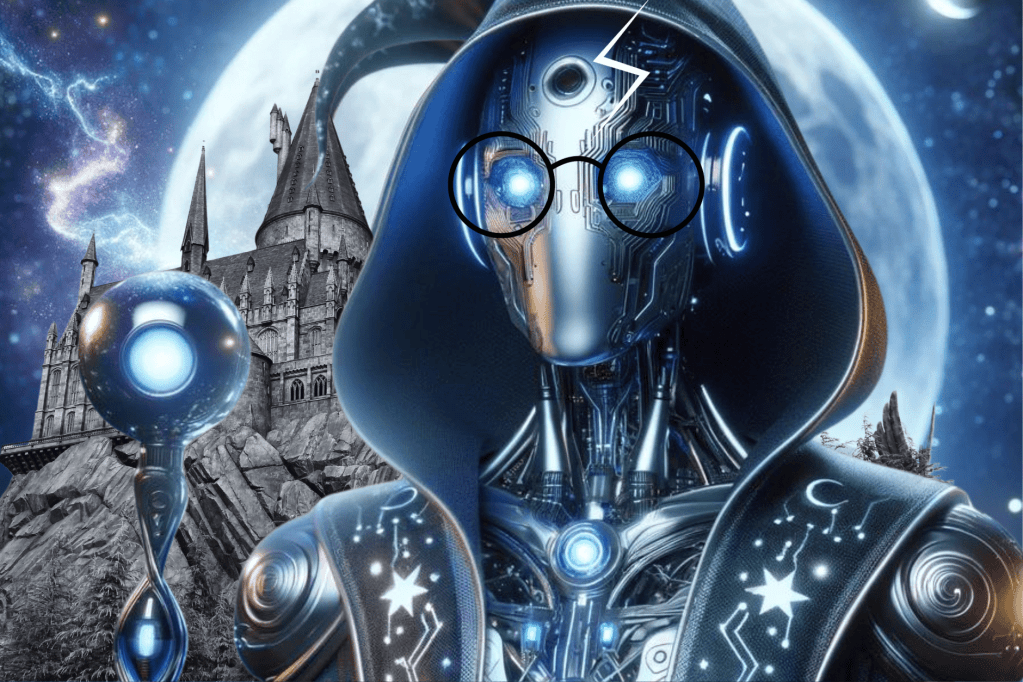It’s been 20 years since J.K. Rowling introduced the world of magic, muggles and wizard Harry Potter, and yet it continues to find relevance in the modern world. An increasing number of researchers are harnessing the power of the iconic Harry Potter books to conduct experiments in the realm of generative AI technology. They say they are drawn to the enduring impact of the series in popular culture and the vast reservoir of language data and intricate wordplay it offers.

Bloomberg examined a compilation of studies and scholarly papers that reference Harry Potter, which provides a glimpse into the forefront of AI research and sheds light on some of the most challenging dilemmas confronting this technology.
Harry Potter: a timeless source of inspiration
In one of the most notable recent examples, the characters show up in a paper titled “Who’s Harry Potter?” This revelation unveils a fresh approach aimed at assisting large language models in the deliberate erasure of specific information. It carries significant implications for the industry since these large language models, the backbone of AI chatbots, rely on extensive online datasets such as “Books3,” encompassing copyrighted material and potentially controversial content. Consequently, some AI companies have faced legal challenges and public scrutiny as a consequence.
“We believed that it would be easier for people in the research community to evaluate the model resulting from our technique and confirm for themselves that the content has indeed been ‘unlearned.’”
Mark Russinovich and Ronen Eldan, ‘Who’s Harry Potter?’
In their paper, they added: “Extending our approach to other types of content, particularly non-fiction or textbooks, presents its own set of challenges. Unlike the fictional universe of Harry Potter, non-fiction content will not possess the same density of unique terms or phrases. Furthermore, non-fictional texts often embed higher-level constructs such as ideas, concepts, or cultural perspectives. It remains uncertain to what extent our technique can effectively address and unlearn these more abstract elements. This would clearly necessitate adaptations of our technique.”
The literary magic of Harry Potter in AI studies
In another study, researchers from the University of Washington in Seattle, University of California at Berkeley, and the Allen Institute for AI developed a new language model called Silo. This technology possesses the capability to eliminate data, thereby mitigating legal liabilities. Nevertheless, it’s worth noting that the model’s effectiveness noticeably declined when trained solely on low-risk texts, such as out-of-copyright books or government documents, as reported in a paper released earlier this year.
“However, when the Harry Potter books are removed from the datastore, the perplexity gets worse, approaching that of the parametric-only LM.”
Sewon Min et al., ‘SILO LANGUAGE MODELS: ISOLATING LEGAL RISK IN A NONPARAMETRIC DATASTORE‘
The inclusion of Harry Potter in AI studies dates back at least 10 years, but its prevalence has grown with the increasing emphasis of academics and technologists on AI tools capable of understanding and providing pertinent responses in natural language.
Read: Stephen Fry raises alarm over AI identity theft using Harry Potter at CogX
“It turns out that movement of the characters — such as when they are flying their brooms — is associated with activation in the same brain region that we use to perceive other people’s motion,” said Leila Wehbe, a Carnegie Mellon researcher who ran a set of experiments in 2014 collecting brain MRI data from people reading Harry Potter stories to better understand language mechanisms. She continued, “Similarly, the characters in the story are associated with activation in the same brain region we use to process other people’s intentions.”
“It turns out that movement of the characters — such as when they are flying their brooms — is associated with activation in the same brain region that we use to perceive other people’s motion.”
Leila Wehbe, Ph.d
Even when Harry Potter is not the focal point of research, it remains a cherished literary reference among researchers. For instance, in one study, Rowling’s creations were employed to assess the cognitive abilities of AI systems, including those responsible for the development of ChatGPT, a subject that has ignited intense discussions in recent debates.
Terrence Sejnowski, the director of the computational neurobiology laboratory at the Salk Institute for Biological Studies, made a compelling argument in his scholarly work. Building upon his idea that chatbots emulate their users, Sejnowski draws a literary analogy by likening them to the Mirror of Erised from the first Harry Potter book.
Read: Unauthorised AI training: 183,000 books incite legal clashes
The Mirror of Erised mirrors the deepest desires of those who gaze into it, offering no actual knowledge or truth but merely reflecting what it perceives as the viewer’s desires. Similarly, according to Sejnowski, chatbots are willing to manipulate facts and disregard the line between fact and fiction in order to effectively mirror the user’s expectations and desires.
“LLMs that reflect your needs as well as your intelligence could be a Mirror of Erised (‘Desired’ spelt backward), which in the world of Harry Potter ‘shows us nothing more or less than the deepest, most desperate desire of our hearts. However, this mirror will give us neither knowledge nor truth. Men have wasted away before it, entranced by what they have seen, or been driven mad, not knowing if what it shows is real or even possible.'”
Terrence Sejnowski, ‘Large Language Models and the Reverse Turing Test’
Harry Potter continues to be the boy who lived and remains an enduring source of fascination for researchers and provides a fantastical realm for the progression of AI technology.
[…] more funding to different regions. It said: “Global successes such as Shetland, Poldark and Harry Potter attract tourists to all parts of the country, adding to the industry’s economic contribution and […]